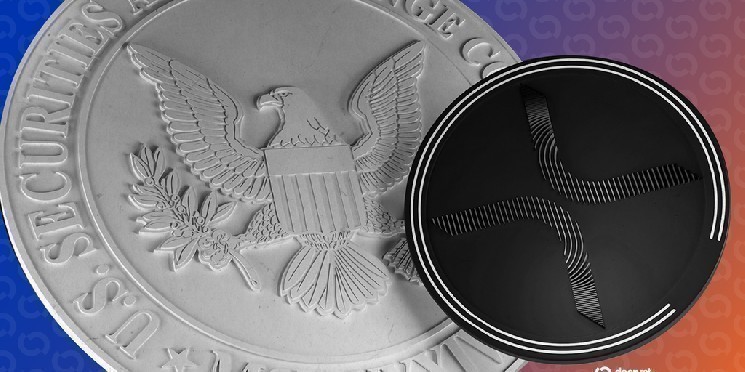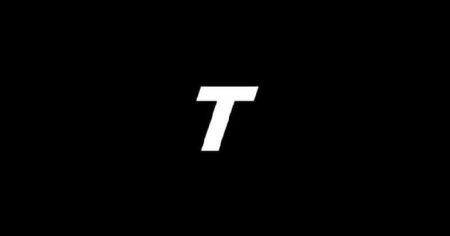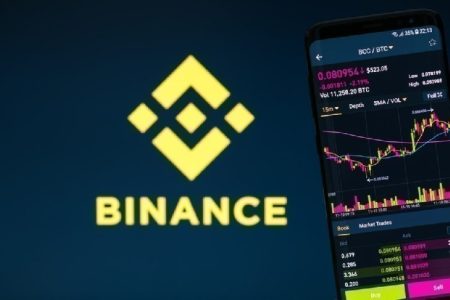Grayscale’s Landmark Multi-Crypto ETF Set to Debut on NYSE Following SEC Approval
Regulatory Breakthrough Brings First Major Diversified Crypto Fund to Traditional Markets
In a watershed moment for cryptocurrency investment vehicles, Grayscale’s Digital Large Cap Fund (GDLC) is poised to make its debut on the New York Stock Exchange, following long-sought approval from the Securities and Exchange Commission. This development marks a significant milestone in the mainstream acceptance of digital assets beyond Bitcoin and Ethereum, as the fund will track a basket of five leading cryptocurrencies, including XRP, Solana, and Cardano. The SEC’s decision, outlined in an order released Wednesday, ends an indefinite pause that had been in place since July and signals a dramatic shift in the regulatory landscape for crypto-based investment products.
The GDLC, expected to begin trading Friday according to sources familiar with the matter, represents a groundbreaking advancement in cryptocurrency investment options. Unlike the single-asset spot Bitcoin and Ethereum ETFs that gained approval last year, Grayscale’s fund is structured as a diversified portfolio tracking the market’s five largest and most liquid digital assets by market capitalization. Bitcoin dominates the fund’s composition at 72%, with Ethereum accounting for 17%. The remaining allocations provide investors with exposure to XRP (5.6%), Solana (4%), and Cardano (1%), according to information published on Grayscale’s website. This balanced approach offers traditional investors a simplified entry point to gain diversified cryptocurrency exposure through conventional brokerage accounts without the complexities of direct digital asset ownership.
“The Grayscale team is working expeditiously to bring the FIRST multi-crypto asset ETP to market,” CEO Peter Mintzberg announced on social media platform X, expressing gratitude to the SEC for its “unmatched efforts in bringing the regulatory clarity our industry deserves.” The approval comes alongside a broader opening in the cryptocurrency ETF space, with Dogecoin and XRP ETFs from Rex Shares and Osprey funds beginning trading on Thursday. These funds operate under the Investment Company Act of 1940, a regulatory framework distinct from the approval process most asset managers have pursued for crypto-focused products. This regulatory diversification suggests regulators are becoming increasingly comfortable with various approaches to bringing digital assets to traditional markets, provided appropriate investor protections are in place.
From Courtroom Battles to Collaborative Progress
The path to this approval reflects a remarkable evolution in the relationship between Grayscale and the SEC. Not long ago, the two entities were locked in a contentious legal battle after the regulator rejected Grayscale’s applications to convert its flagship Bitcoin fund into a full-fledged ETF. In a landmark victory, Grayscale successfully challenged the SEC in court during the Biden administration, with judges ruling that the agency’s rejection was “arbitrary and capricious.” This judicial triumph ultimately paved the way for the approval of spot Bitcoin ETFs in the United States and fundamentally altered the regulatory approach to cryptocurrency investment vehicles. “They fought for the industry,” noted ETF Institute co-founder Nate Geraci on X, adding that Grayscale “should also be applauded for laying groundwork here.”
The SEC’s newly established rules for commodity-based products mirror the core arguments in Grayscale’s lawsuit, requiring that an asset have futures contracts trading on a U.S. venue that monitors for fraud and market manipulation. This alignment represents a significant regulatory evolution, acknowledging the maturity of cryptocurrency markets and their surveillance infrastructure. Grayscale’s legal argument centered on the inconsistency of the SEC approving futures-based Bitcoin ETFs while rejecting spot Bitcoin ETF proposals, despite similarities between the products, including surveillance sharing agreements. The current regulatory framework now recognizes these parallels, establishing clearer pathways for crypto-based investment products that meet appropriate standards for investor protection.
Expanding the Cryptocurrency Investment Universe
The approval of Grayscale’s multi-crypto ETF signals a broadening horizon for cryptocurrency investment products. Coinbase’s derivatives division currently offers futures contracts for twelve cryptocurrencies beyond Bitcoin and Ethereum in the U.S. market, including XRP, Solana, and Dogecoin. Bloomberg ETF Analyst Eric Balchunas suggested on X that these established futures markets could serve as the foundation for future ETF approvals, potentially enabling a much wider range of cryptocurrency investment products to reach traditional financial markets. This expansion would significantly enhance investor choice and market accessibility, allowing more nuanced exposure to the digital asset ecosystem through regulated investment vehicles.
Kristin Smith, president of the Solana Policy Institute, told Decrypt that diversified cryptocurrency ETFs represent a natural evolution of the market and provide investors with enhanced options for digital asset exposure. “The introduction of diversified crypto ETPs that hold multiple digital assets, including Solana, is the next logical step in the journey to ensure Americans can invest in crypto,” Smith explained. For industry participants, particularly those who witnessed the regulatory struggles of recent years, the SEC’s evolving approach reflects remarkable progress. Jennifer Rosenthal, former head of communications at Grayscale and current chief communications officer at DeFi Education Fund, expressed her enthusiasm about the developments: “It is crazy exciting how far we have come since the lawsuit and subsequent victory. For me, this has always been a conversation about investor choice.”
A New Chapter in Digital Asset Investment Accessibility
The introduction of Grayscale’s multi-cryptocurrency ETF represents a significant maturation of the digital asset investment landscape. By offering exposure to a diversified basket of cryptocurrencies through a familiar investment structure, GDLC bridges the gap between traditional finance and the evolving digital asset ecosystem. This approach addresses many of the concerns that have historically kept institutional and retail investors from engaging directly with cryptocurrencies, including security challenges, regulatory uncertainty, and operational complexities. The fund’s NYSE listing places digital assets alongside traditional investment vehicles, further normalizing cryptocurrency as an asset class worthy of consideration within diversified portfolios.
The SEC’s approval of GDLC alongside new generic listing standards for commodity-based products establishes a clearer regulatory framework that could accelerate the introduction of additional cryptocurrency investment products. This regulatory clarity benefits the entire digital asset ecosystem by providing established pathways for bringing innovative financial products to market while maintaining appropriate investor protections. The development comes at a time when institutional interest in digital assets continues to grow, with professional investors increasingly seeking regulated, transparent vehicles for gaining cryptocurrency exposure. As the first major multi-cryptocurrency ETF in the United States, GDLC’s performance and investor reception will likely influence the development of future cryptocurrency investment products and regulatory approaches.
The journey from Grayscale’s courtroom battle with the SEC to collaborative progress on expanding cryptocurrency investment options illustrates the remarkable evolution of the regulatory environment surrounding digital assets. What began as an adversarial relationship has transformed into a constructive dialogue that has ultimately benefited investors through increased choice and accessibility. As cryptocurrency markets continue to mature and institutional adoption accelerates, the availability of diversified, regulated investment vehicles will play a crucial role in bridging traditional finance with the innovative potential of digital assets. Grayscale’s GDLC represents not just a new investment product, but a significant milestone in the ongoing integration of cryptocurrencies into the mainstream financial ecosystem.















